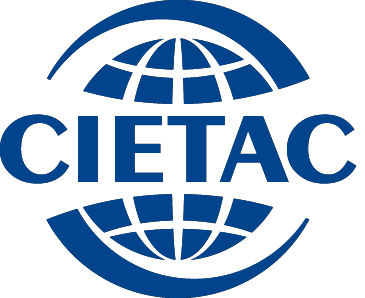
导言
2024年5月5日,值第26届国际商事仲裁理事会国际仲裁大会(“ICCA Congress”)在香港召开之际,中国国际经济贸易仲裁委员会(简称“贸仲”)主办的第二届贸仲粤港澳大湾区争议解决高峰论坛——“时代变革机遇”在香江之畔成功举办。
贸仲副主任兼秘书长王承杰先生、香港特别行政区政府律政司司长林定国先生、澳门特别行政区法务局局长梁颖妍女士、广东省律师协会副会长刘涛先生致开幕辞,联合国国际贸易法委员会秘书长Anna Joubin-Bret女士致闭幕辞。最高人民法院民四庭和国际商事法庭法官奚向阳先生、香港特别行政区高等法院首席法官潘兆初先生分别发表主旨演讲。
作为本届国际商事仲裁理事会国际仲裁大会参会规模最大的边会,来自中国内地、中国香港、中国澳门、美国、英国、澳大利亚、新加坡、马来西亚、墨西哥、德国、瑞士、巴西、西班牙、哥斯达黎加、智利、埃及、尼日利亚等近40个法域,跨六大洲逾300位法律界、仲裁界和商界人士到场参会。本次论坛还获得了联合国国际贸易法委员会、海牙国际私法会议等国际组织,香港特别行政区政府律政司、澳门特别行政区法务局等政府机构,香港律师会、澳门律师公会等专业组织,以及香港总商会、香港中华厂商联合会、香港中华总商会在内近三十个国内外机构鼎立支持。
现将潘兆初首席法官主旨演讲现场视频回放与主旨演讲稿收录如下:

演讲稿
Mr Wang, Mr Lam, Ms Leung, Mr Liu, honoured guests, ladies and gentlemen,
It is a pleasure and a privilege to have been invited to give this Keynote Speech at the 2024 CIETAC Greater Bay Area Summit. It has been five years since the inaugural Greater Bay Area Summit was held in 2019. In that time, much has changed. It is thus an appropriate and opportune moment not only to take stock of the latest developments, but also to consider the opportunities they present. I would like to take this moment to thank CIETAC for all their efforts and arrangements, and congratulate them on what promises to be a most useful and insightful Summit.
As outlined in the 14th Five-Year Plan, the Hong Kong Special Administrative Region will continue its active integration into overall national development and consolidate and enhance its development in respect of the ‘eight centres and four pillars’, that is, eight key areas and four pillar industries. Hong Kong’s eight centres are: an international financial centre; an international innovation and technology centre; an international cultural exchange centre; an international trade centre; an international shipping centre; an international aviation centre; an international intellectual property trading centre; and an international centre for legal and dispute resolution services. The four pillar industries of Hong Kong remain financial services; tourism; trading and logistics; and professional and other producer services. These centres and pillars are not, of course, separate from one another, but rather overlapping and inherently intertwined, underscored by Hong Kong’s common law tradition and strong rule of law.
It is universally accepted and a matter of historical fact that the rule of law has and continues to underpin Hong Kong’s economic success. Under the “One Country, Two Systems” principle, the Hong Kong Special Administrative Region remains a common law jurisdiction within the People’s Republic of China, a civil law system. This visionary approach, for one country to accommodate more than one legal system, coupled with Hong Kong’s two official languages of English and Chinese, enables Hong Kong to enjoy an entirely unique position as the only common law jurisdiction with deeply rooted connections to both the Mainland and the international community. This unique position equips Hong Kong to not only act as a bridge between East and West, but also to serve as the ideal forum for resolving disputes between parties in the Mainland, Hong Kong and other parts of the world. As a renowned international centre for legal and dispute resolution services, Hong Kong provides impedus to the developments of the other seven key areas and four pillar industries. Please allow me to elaborate.
Under the Basic Law, the independence of Hong Kong’s Judiciary is guaranteed. Hong Kong’s impartial, independent and transparent judicial system ensures that there is a sound legal foundation and an authoritative forum for the resolution of disputes. This in turn creates a level playing field for individuals and business entities, who can be confident that the laws of Hong Kong are open and certain and fundamental human rights protected, and their interests will be protected and disputes resolved fairly. This leads to a secure environment in which trade can take place, investments can be made, and business can be done. The fact that disputes will be resolved by the courts of Hong Kong impartially, independently, without interference, fear, favour, bias or deceit instils confidence in the Hong Kong Special Administrative Region as a place for business.
Having said that, parties may not always choose to resolve their disputes by bringing them to court. There are sound reasons for parties to wish to have their disputes resolved by other means, including time, cost, confidentiality, limitations as to the types of award the court may give, and the fact that court proceedings are so adversarial and entrenching of parties’ positions that they may not be able to work together again after a court battle. Thus, to address those legitimate concerns, Hong Kong offers well-established alternative means of dispute resolution. This has been an area of continuing growth and development in the last couple of decades, resulting in increasing use of alternative means such as arbitration and mediation. Of particular pertinence to today’s Summit is of course arbitration. According to the Chambers International Arbitration 2023 Guide, the five most preferred arbitral institutions are the International Chamber of Commerce, Singapore International Arbitration Centre, Hong Kong International Arbitration Centre, London Court of International Arbitration and the Chinese International Economic and Trade Arbitration Centre. Thus, three out of the five preferred institutions are located in Asia, with the SIAC reporting 357 new case filings, and 515 new case filings for the HKIAC.
Arbitration in Hong Kong is well supported by the Judiciary. In Hong Kong, arbitration and litigation are basically complimentary in relationship and in role. The benefits of arbitration are familiar to us all, including party autonomy, confidentiality, finality, the binding nature and enforceability of arbitral awards. Arbitration is able to bridge parties and resolve disputes across different jurisdictions where the courts cannot. Parties involved in a commercial deal may not be familiar with the laws of transaction or the litigation process in each other’s jurisdiction, making litigation an unattractive and even daunting option for dispute resolution. Arbitration provides an alternative forum dispute resolution that both sides may be equally familiar and comfortable with. That is particularly the case where a party to the dispute is a state or state-owned enterprise, where confidentiality may well be a determinative factor in choosing the option for dispute resolution. The courts of Hong Kong are empowered under the Arbitration Ordinance to support arbitration by: upholding arbitration clauses; appointing arbitrators where necessary; enforcing interim measures; enforcing arbitral awards; and in limited circumstances, providing an avenue for appeal.
Arbitration is a private method of dispute resolution, created by agreement between the parties. This agreement is usually entered into pre-dispute, but agreements to submit a dispute to arbitration may also by entered into post-dispute. The fact that it is a form of dispute resolution created by agreement is critical. The parties themselves potentially exercise much control over the way their dispute will proceed. The rules to be followed during the arbitral process are by choice of the parties, and what rules to follow is an important one. The rules must be sufficiently detailed to anticipate the developments that may arise during the course of arbitration, yet flexible enough to ensure that all the benefits of not taking the dispute to court continue to be enjoyed by the parties. Most importantly, where the arbitration concerns a dispute in a new or developing area of business or commerce, they must be sufficiently innovative to cover such subject matter.
Here, the New Edition of the Arbitration Rules of CIETAC (2024) come into focus. One of the sessions during this Summit will present the highlights of the 2024 Edition of these Rules, and so it is unnecessary to go into too much depth at this stage. Nonetheless, a number of highlights are worth touching upon, as they reflect some key developments in international arbitration and other areas which are pertinent for disputes which may arise in growth industries.
The New Edition of the CIETAC Arbitration Rules sees the introduction of third party funding. This brings the CIETAC Rules in line with the rising trend in jurisdictions worldwide, including Hong Kong, to allow third party funding in arbitration. As mentioned, costs can be a concern when engaging in dispute resolution, whether before the court or an arbitral tribunal. However, experience suggests that start-ups, or small and medium-sized enterprises who wish to protect their rights and interests by way of arbitration may not have the deep pockets or the liquid capital to engage in arbitration. The introduction of third party funding for arbitration enhances access to arbitral justice under the CIETAC Rules. This strengthens dispute resolution under the auspices of CIETAC arbitration, and also helps encourage the growth and development of smaller sized enterprises by ensuring they have greater access to arbitration that can be funded by third parties. Under the new CIETAC provisions, parties have to inform the arbitral tribunal about third party funding, and the funding may be taken into account in deciding the issue of costs. For transparency’s sake, the economic interest of the third party funder will also be disclosed, which helps to protect the interests of the other party. CIETAC had already developed its own Guidelines for Third-Party Funding, some of which were in turn incorporated into their International Investment Arbitration Rules. This is thus a welcome development, and one may anticipate that third-party funded arbitrations will become increasingly common in future.
Another development in the CIETAC Rules which will help manage costs is that of early dismissal. Under the new Rules, arbitral tribunals may at the request of one side, dismiss the whole or part of the other side’s claim on the grounds that the claim is manifestly without legal merit or outside the jurisdiction of the tribunal. This again brings the CIETAC Rules in line with international trends. More importantly, it ensures that the resolution of disputes under CIETAC arbitration will avoid unnecessary expenditures of time and costs on matters or issues that are utterly without merit. However, claimants are also protected from unmeritorious applications for early dismissal as tribunals may require the party applying for early dismissal to submit justifiable grounds in support of the application. By allowing for early dismissal, the arbitration process under CIETAC Rules will potentially become much more cost effective, and the resolution of disputes will also be more efficient, which is conducive to business interests.
Furthermore, several important amendments have been made to the procedure under the CIETAC Rules. These also reflect important trends in international arbitration, that will have significant impact on the effectiveness of arbitral proceedings.
First, preservation measures or conservatory measures will now be accepted by CIETAC and forwarded to courts both in and outside the Mainland. Such measures may be sought even before a notice for arbitration has been issued. This means that measures to preserve assets outside the RPC can now be taken under CIETAC arbitration. This provides parties with much more security for future enforcement of arbitral awards. The availability of a wider scope for such measures will gives parties much greater assurance that there will be sufficient resources to satisfy any award in their favour. It will also enable arbitral tribunals to respond in a timely manner to protect the interests of parties prior to arbitration and prevent the dissipation of assets or take other measures for the purposes of frustrating an arbitral award. This is tremendously helpful in cross-border or international financial arbitration.
Second, parties to a CIETAC arbitration may now apply for interim measures, as the new Rules provide that interim awards on any issue may be made by the arbitral tribunal. Such awards are not final, but deal with issues that may arise in subsequent proceedings, including questions on the law governing the arbitration, and the language the arbitration should take place in. This again brings the CIETAC Rules in line with common international arbitration practice, as well as enhancing the procedural efficacy of CIETAC arbitration. The protection of rights in this way may serve to greatly assist, for example, parties to an arbitration involving intellectual property rights.
Third, the new CIETAC Rules also provides for multi-contract and consolidation of arbitrations, building upon the previous provisions that allowed for connected disputes or disputes arising out of ancillary contracts to be resolved in one arbitration. This is now expanded to include contracts involving related subject matter, which may be joined even after the commencement of an arbitral case under the Rules. The relaxation of restrictions against consolidation will lead to greater efficiency when arbitrating complex international investment and trade disputes, which often involve connected contracts but with minor variations of legal relationships or even parties. This means that the CIETAC Rules further lend themselves to investment and trade arbitrations.
Fourth, since the pandemic, dispute resolution has had to adapt to being moved online, with communication taking place electronically and digital tools being used to present cases. In response, the CIETAC Rules have been updated to accommodate the needs of online arbitration. In particular, requests for arbitration can now be submitted electronically via CIETAC’s online case filing system, and service of all documents, notices and other materials for arbitration proceedings may now be validly served via electronic means. This includes email, but also other information systems accessible to the parties, particularly CIETAC’s own digitised information exchange system. Submission of hard copies of documents are no longer compulsory. Moreover, arbitral tribunals are now empowered to conduct hearings virtually or by other means of electronic communication rather than in person orally, with administrative and logistical support for virtual hearings being provided by the CIETAC Arbitration Court. Arbitrators may now sign arbitral awards electronically, and awards may also be delivered in electronic form where the parties agree to do so. The digitisation of CIETAC arbitral proceedings in this way will make the proceedings a much more attractive option for cross-border and international arbitration, particularly for parties from different jurisdictions.
The innovations introduced to the CIETAC Rules in support of arbitration demonstrate the importance of the strength of dispute resolution is to the growth and development of industries. Without these innovations to increase the accessibility and flexibility of arbitration, businesses of all sizes may not feel comfortable with their options in respect of resolving their disputes. This is particularly important at an international level, with cross-border investment and transactions. The work that CIETAC has invested in evolving their Arbitration Rules is an effort well-spent, and will no doubt to bear fruit swiftly.
As Chinese mainland and Hong Kong SAR’s economies continue to grow and develop, so too must the methods of dispute resolution continue to evolve and keep pace with the issues that such growth and development give rise to. Innovative dispute resolution processes underpin new industries and business formats, including the growth of new energy vehicles and other scientific, technological and intellectual property-driven markets, and the challenges of this digital age, including the digital economy, protection of data and privacy, and the movement of data and intellectual property. Just as the courts stand ready to render justice in cases that arise out of these areas, so too must alternative dispute resolution methods adapt and change to accommodate these emerging markets and technologies. The evolution and development of industries and markets inherently present new challenges for those involved in their regulation and the resolution of disputes that arise out of them. What is most critical is to embrace the challenges as opportunities. Change may not always be comfortable, but adaptation is necessary to ensure not just survival, but success in future.
On this note, I wish this Summit and all its speakers every success, and once again thank our organisers for putting together such a forward-thinking and cutting edge programme!
Thank you.













